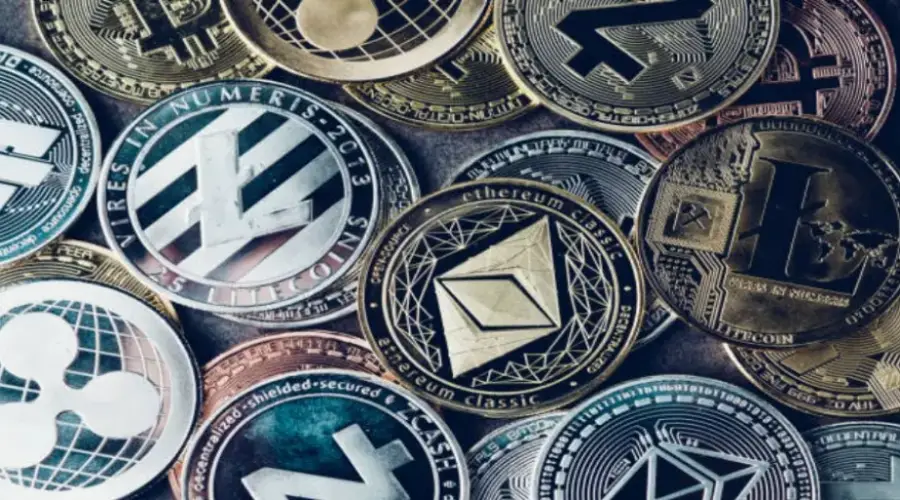Long before the advent of social media, reputation was a priceless asset. Qoheleth of the Old Testament also knew this, saying: “It is better to have a good name than good oil.” He will also talk about it philosopher and writer Ilaria Gasparirecently returned to the bookstore with hers latest novel, The reputationreleased by Guanda.
Gaspari will be the protagonist of two meetings of Festival of DespairAndria’s exhibition that investigates with ironic tones the transformative power of literary sentiment par excellence (this year the theme is «How do you make mistakes»). Tomorrow (Monday 10 June) the philosopher, with the writer Anna Voltaggio, will investigate the relationship between our appearance and our true identity. On Tuesday, in the company of the essayist Guido Vitiello, you will participate in the dialogue show Two hearts and a Recherchededicated to reading Proust.
What does reputation mean today?
«I think it always means the same thing, which we could summarize with: what people say about you when you leave a room. Reputation is, in other words, the name you have, the reputation you have, the way others consider you. Of course, today we are living in an unprecedented moment in the history of reputation, because in addition to the reputation, so to speak, analogue, we have a digital one, with the implicit possibility that, to build an image of us, it is not only the circle of our close acquaintances, the country, the city, the environment we know, but an infinite number of people who perhaps, physically, in the flesh, we will never meet.”
Has its meaning changed over time?
«We can certainly identify two big changes. The first is a positive change although, I fear, not yet fully accomplished, and concerns female emancipation and the results of feminist struggles: until a relatively recent time, an “honor” also existed on a legal level (see the crime of honor) which was cemented on the control of the bodies and desires of women, who were entrusted with the burden of maintaining their own and their family’s “good reputation” through impeccable conduct. Today, fortunately, this effectiveness of the reputation as a device for controlling customs (in every sense, from habits to clothes) has significantly weakened. But there are habits and beliefs, social structures that somehow emanate, like radioactive waste, even after being deauthorized, some residue of their ancient power. And certainly, even if fortunately today we have an autonomy of behavior, a reputational autonomy that was unthinkable a few decades ago, some prejudices and stereotypes persist, which unfortunately we sometimes see at work as forms of blackmail and revenge.
For example?
«No one would dream of telling us that we have tarnished the family’s reputation by making love to someone we like, of course. But the behaviors, often female, “sanctioned” by terrifying violence like that of the so-called revenge pornI would place them in a line that comes directly from an ancient, traditionalist idea of reputation, which punishes freedom, spontaneity and autonomy precisely with reputational blackmail.”
And the other change, what is it?
«Digital reputation. Which is based on the possibility of extraordinarily creative self-narration, in front of a potentially infinite audience, but to that same audience it delivers immense destructive power. Also because, in the digital world, it is true that a very powerful reputation can be based on very little and inflated purely by word of mouth, a sort of reputation for reputation’s sake, but it is also true that a person’s reputation can be destroyed without even taking on any responsibility, in the blink of an eye, perhaps on the basis of invented rumors or manipulated images.”
And can this reputation be rebuilt?
«I believe that, as the famous case of Chiara Ferragni is demonstrating, it is rather difficult to “restore” it, to rebuild it on the same basis. Because, when a reputation is destroyed, thought mechanisms very similar to those of suspicion are activated, and therefore it becomes difficult to convince those who no longer see us with the same eyes to free themselves from new prejudices all over again. Better, perhaps, to take note of it and try to imagine not restoring it, but inventing a new way of facing the gaze of others. Perhaps even by reducing, after the trauma of the reputational collapse, the space that we grant in our lives to that external gaze understood as an undifferentiated block. Perhaps distinguishing, and asking ourselves: in whose eyes do I want to be estimable, and why? It is already a healthier, more human criterion, I would say.”
Why your interest in this topic?
«I think it is a very current topic, which is talked about a lot, indirectly, but on which little is reflected regarding the ethical implications. And yet it is very interesting, very human, and, I believe, important. I would say, indeed, urgent, especially in its implications which more recently have undergone changes whose consequences we are not able to fully process; and, above all, from the perspective of those who are more vulnerable, because they have a more fragile idea of themselves due to age (adolescence is clearly a very delicate age with respect to the issue of reputation, because it is the moment in which we take note of the gaze of others and today that gaze has an unusual power that goes beyond the direct, empirical experience that we have of something other than us) or of inclinations, character, situations that we experience. I believe that we must reflect on the implications of this, realize what individual and group responsibilities are, put those who are most vulnerable in a position to reduce the explosive power of this type of gaze and judgement.”
Is reputation really important?
«It is important to the extent that we give importance to it. Of course, being social animals, indeed political animals, we can hardly ignore the gaze of others on us. But I think it is a duty, always, to give the right proportions to what happens to us, to ask ourselves the reasons why something seems important to us. Sometimes we realize that these are optical illusions. For example, asking ourselves whose opinion we care about, and why; and how we see others, what we think of them, what weight we give to our opinions, to our gaze. I think it is a small but fundamental exercise, which reminds us that yes, we live in a network of relationships, but fortunately we have the right to our autonomy.”
How does the idea of reputation change over the course of life?
«It doesn’t change in the same way for everyone, but I would say that, certainly, in certain phases of life, the more delicate ones, in which we know each other less and perhaps give more weight to the gaze of others than to our own, perhaps because our own has not yet is formed, because we still don’t know ourselves enough and we don’t have the measure of the beauty of being autonomous, free, active, in defining what we want and what we don’t want, what we like and what we don’t like, well, in those phases we tend to give reputation a space that can be excessive, tyrannical. Growing, maturing, becoming autonomous also means reducing the scope of reputation in the eyes, voices and words of those we esteem: reputation and esteem, ultimately, mean the same thing. And discovering its reciprocity is certainly an important step.”
Source: Vanity Fair
I’m Susan Karen, a professional writer and editor at World Stock Market. I specialize in Entertainment news, writing stories that keep readers informed on all the latest developments in the industry. With over five years of experience in creating engaging content and copywriting for various media outlets, I have grown to become an invaluable asset to any team.







